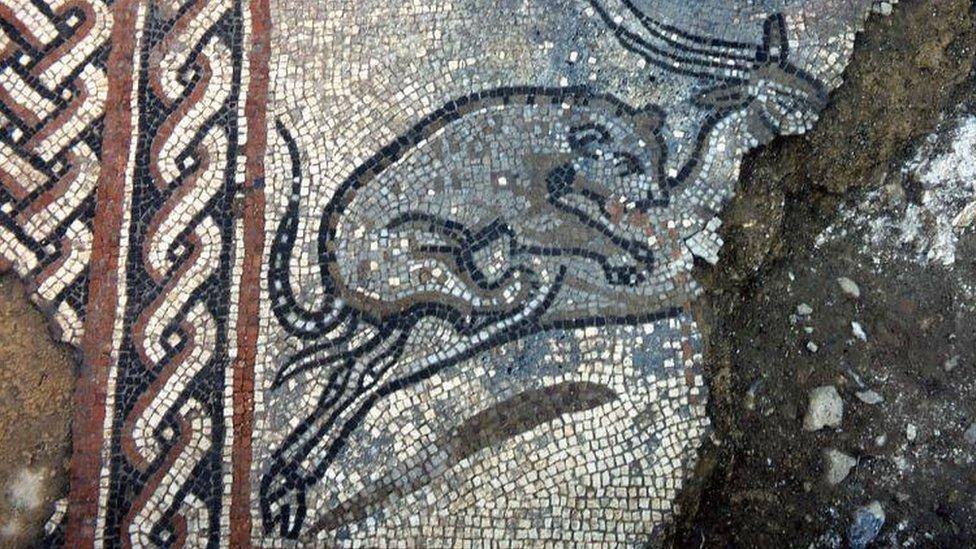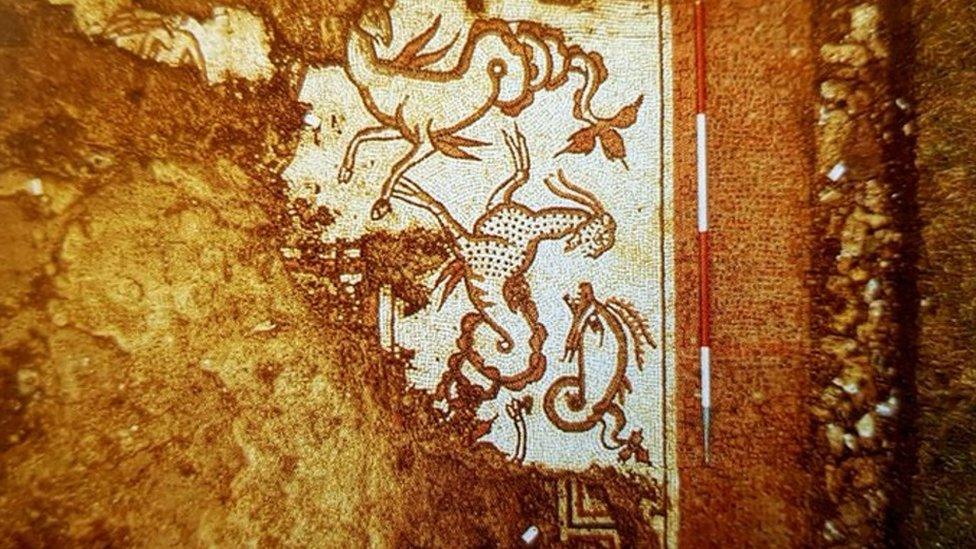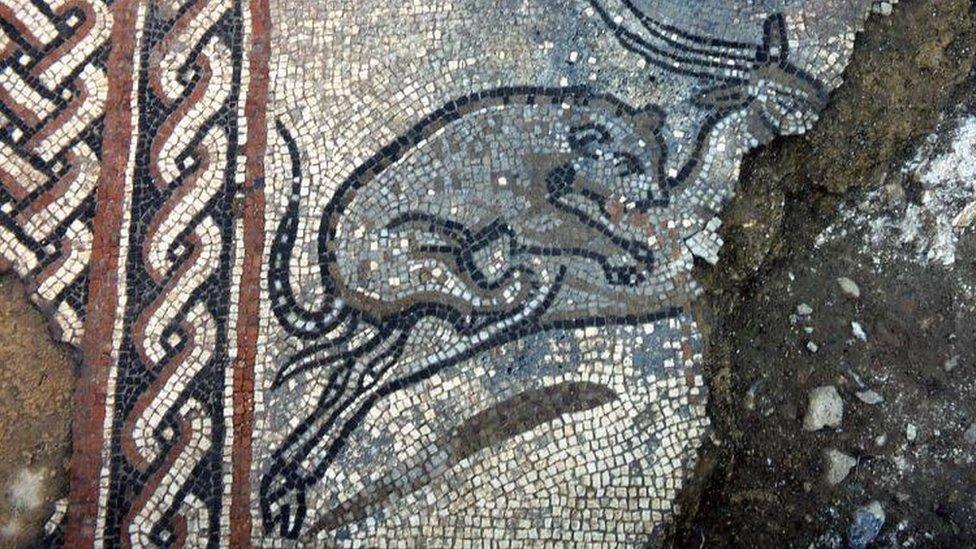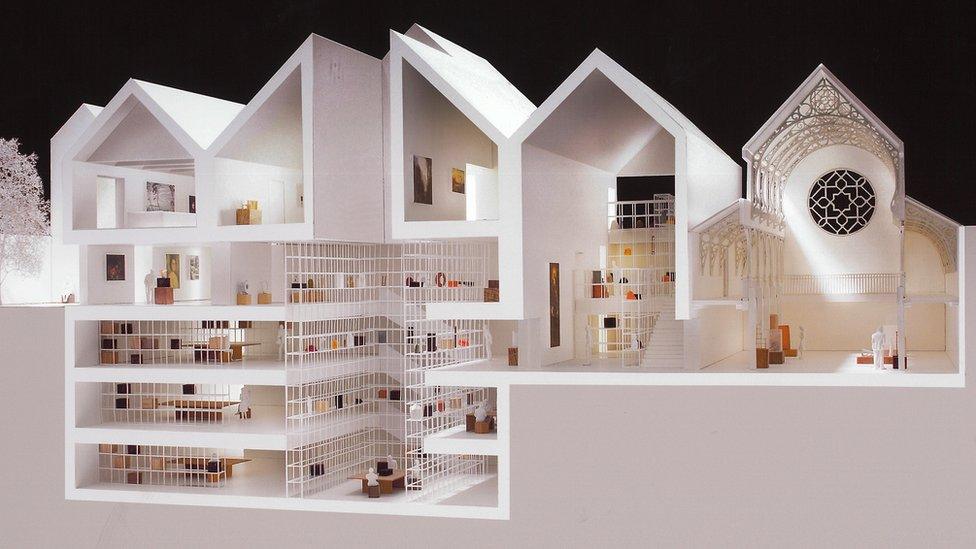Dewlish Roman mosaic: Museum bids to save artwork from export
- Published

The 4th Century Roman mosaic shows a leopard attacking an antelope
A museum is hoping to buy an "internationally significant" Roman mosaic to stop it from being exported.
The 1,600-year-old floor panel showing a leopard attacking an antelope was unearthed by archaeologists in Dewlish, Dorset, in 1974.
The government placed a temporary export bar on the fragment which it is hoped will be extended until January.
Dorset County Museum said it had "substantial commitments" to the piece, which is up for sale for £135,000.
"It's a critical part of this county's heritage as well as being internationally significant," said Jon Murden, director of the museum in Dorchester.
He added the piece was also "one of the most significant 4th Century Roman mosaics in the country".

The panel, measuring 2m by 2.4m (6.5ft by 8 ft), was discovered in the grounds of Dewlish House
He said the museum was working closely with Arts Council England and the British Museum and hoped to secure a "significant grant" through the V&A purchase grant fund.
Mr Murden hopes the museum, which received more than £210,000 from the government's £1.57bn culture recovery fund, will be able to display the artwork when it reopens next year following a £15m revamp.
Dewlish resident Jon Seymor, who has been campaigning to keep the mosaic in Dorset, described exporting it as "cultural vandalism".
"These things should not be available to be sold on the market like an old car," he said.
The mosaic, measuring 2m by 2.4m (6.5ft by 8 ft), was discovered in the grounds of Dewlish House and is thought to have formed part of the flooring of a Roman villa.
It was sold at auction in 2018 for £28,000. The buyer, antiques dealer Edward Hurst, previously said he was selling it to "one of the great international collectors".
The government said it had been advised to suspend the export due to the "exceptional workmanship" and research value of the piece.
The temporary export deferral licence expires at midnight. An update on whether or not it will be extended is expected to be announced on Monday, Arts Council England said.
- Published20 July 2020

- Published27 July 2018
